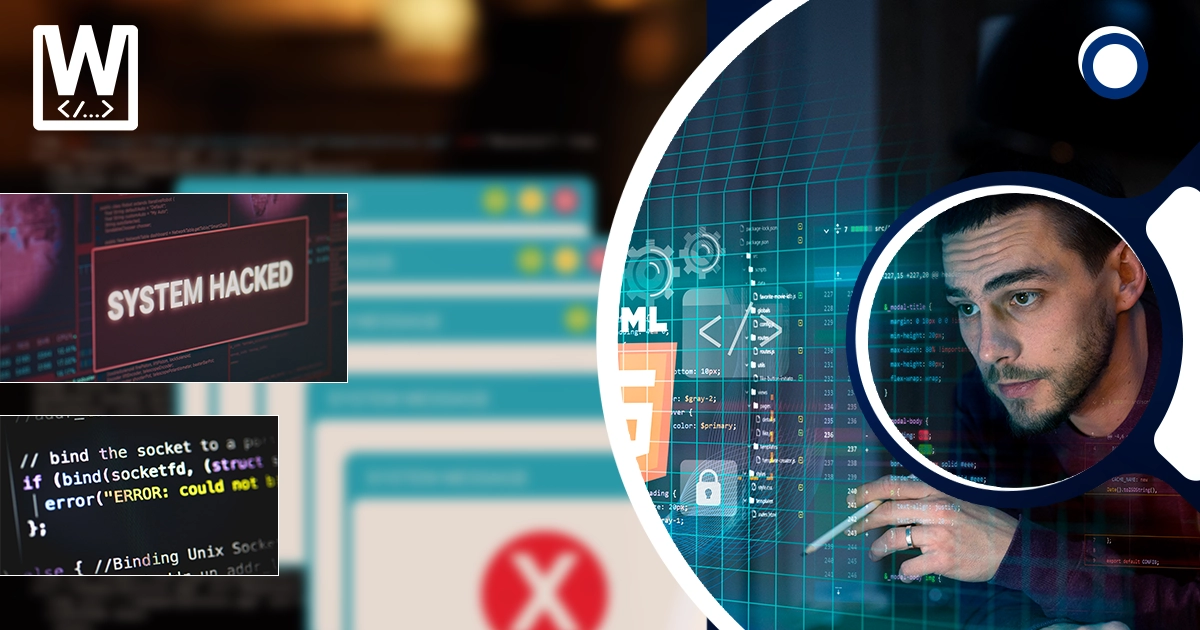The 7 most common coding issues.
Common coding issues can vary depending on the programming language, the context of the project, and the skill level of the programmer. Coding issues frequently arise across languages, requiring thorough testing, code review, and adherence to coding standards and best practices in projects. Here are seven common types of problems in coding:
- Syntax errors: Syntax errors occur when the code violates the rules of the programming language. These errors often lead to immediate termination of the program and are usually detected by the compiler or interpreter.
- Logic errors: Logic errors occur when the code does not produce the expected output due to flaws in the algorithm or logic. These errors can be challenging to identify because the code runs without throwing any errors.
- Null reference errors: These occur when a program attempts to access or dereference a null object or a reference that points to nothing. It’s a common issue in languages like Java, where null references are allowed.
- Off-by-one errors: These errors occur when iterating over a collection or array, and the loop’s start or end condition is incorrect by one element. Off-by-one errors can lead to unexpected behavior or even crashes.
- Resource leaks: Resource leaks occur when system resources such as file handles, database connections, or memory are not properly released after use. This can lead to performance degradation or even system crashes in long-running programs.
- Concurrency issues: In multi-threaded or concurrent programs, issues like race conditions, deadlocks, and thread interference can occur. These issues can lead to unpredictable behavior and are often challenging to debug.
- Security vulnerabilities: Security vulnerabilities such as SQL injection, cross-site scripting (XSS), and authentication bypass can arise due to improper input validation, insecure coding practices, or outdated libraries. These vulnerabilities can be exploited by attackers to compromise the system’s integrity or steal sensitive data.
How to fix these issues?
Coding issues and solutions can sometimes be challenging and time-consuming, especially for complex problems. Fixing coding issues typically involves a systematic approach to identifying, understanding, and resolving the problem. Here’s a process to follow for fixing coding issues:
- Identify the problem: Understand what exactly is going wrong. This might involve reading error messages, examining unexpected behavior, or tracing through the code’s execution.
- Reproduce the issue: Try to recreate the problem consistently. This helps ensure you understand the conditions under which the issue occurs.
- Review the relevant code: Look through the code where the issue is happening. Pay attention to the logic, variable values, and any relevant dependencies.
- Check for syntax errors: Sometimes, coding issues are as simple as a typo or missing punctuation. Review the syntax of your code carefully.
- Debugging tools: Use debugging tools provided by your development environment or language. Techniques like printing variable values, setting breakpoints, or using a debugger can help you understand what’s happening during execution.
- Test solutions incrementally: When you think you’ve identified a solution, test it incrementally. Make small changes and check if they resolve the issue without introducing new problems.
- Learn from mistakes: After resolving the issue, take a moment to reflect on what went wrong and how you fixed it. This can help you learn and improve your coding skills in the future.






well understood and helpful in some certain circumstances